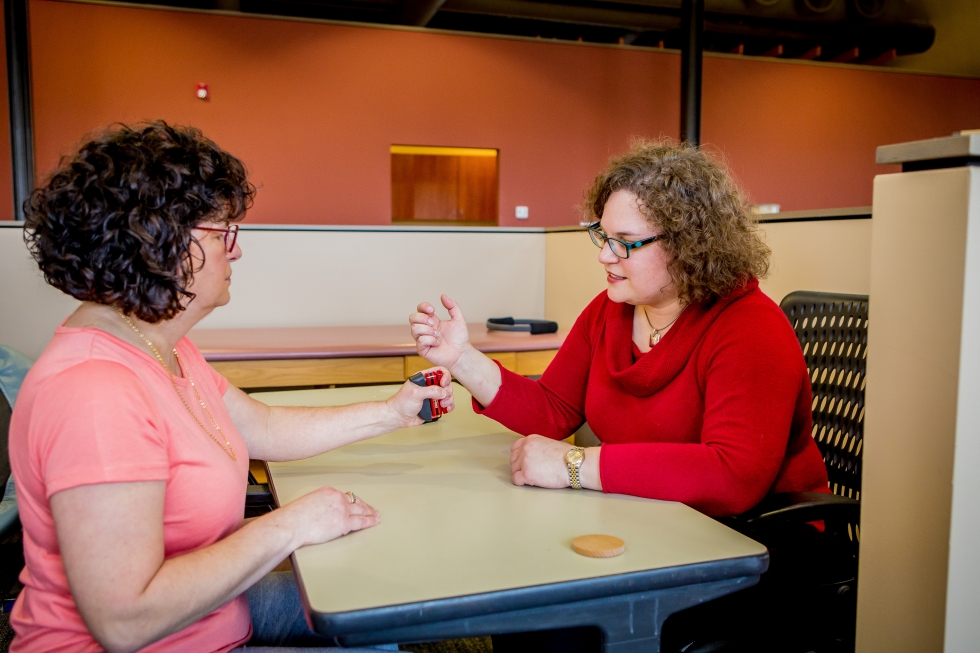All human interactions are built on communication. This is what shapes our experiences, opportunities, and relationships. For some adults with communication challenges, this can negatively affect their social interactions as well as their overall quality of life. Speech therapy helps adults overcome these challenges, enhance their social interaction, and build bridges toward better communication. This article explores the impact that speech-language therapy can have on adults’ social interactions and their overall quality of life.
Understanding Speech Therapy:
Speech therapy benefits adults as well. Adults with developmental delays may face challenges in speech articulation due to neurological conditions or injury. Speech therapy is designed for adults to address communication issues by using techniques and tailored interventions.
Identifying the Social Interaction Problems:
Adults with communication difficulties may experience a range of social challenges. These include difficulty communicating thoughts and ideas in groups, maintaining eye contact, or taking part in discussions. These difficulties may lead to feelings such as frustration, loneliness, and low confidence, which can affect personal and professional relationships. Speech therapy helps adults overcome these communication challenges, resulting in improved social interaction and a better quality of life.
Tailored Interactions for Social Communication:
Speech therapists are trained to use a wide range of interventions that are evidence-based in order for them to treat social communication challenges among adults. These can include:
- Therapeutic Articulation:Improves clarity and comprehension in conversations by targeting speech sounds.
- Language therapy:Enhancing communication skills through the enhancement of comprehension, expression, linguistic pragmatism, and language skills.
- Speech Therapy:Addressing vocal clarity, volume, pitch, and resonance.
- Social-Skills Training:Teach techniques for maintaining and initiating conversation, interpreting social cues nonverbally, and navigating interpersonal interactions.
- Cognitive-Communication Therapy:Addressing underlying cognitive deficits that impact communication, such as attention, memory, and problem-solving skills.
Building Confidence & Self-Esteem
An important benefit of adult speech therapies is the increase in self-esteem, confidence, and competence that can be achieved through improved communication. As individuals improve their communication and speech skills, they feel empowered to take part in social interaction and express their thoughts and opinions more effectively and with greater conviction. This newfound sense of confidence positively impacts every aspect of their lives – from personal relationships to success at work.
Increasing Professional Opportunities:
Successful workplaces require effective communication. Adults undergoing speech therapy might find that they are better able to communicate effectively with their co-workers, customers, and supervisors. This can lead to improved work performance and increased career advancement opportunities. Confident and clear communication can also create a positive image in the workplace, allowing for more opportunities to be created and new connections to be made.
Improving Quality Of Life:
The goal of speech-language therapy for adults, ultimately, is to improve the overall quality of living by improving communication skills and social interactions. A better communication ability allows adults to develop deeper, more meaningful connections with family members and friends. They are also able to participate in social activities and events within their community, and they feel more connected. Improved social interactions have positive effects on families, communities, and workplaces.
Conclusion:
Promoting effective communication and social interaction requires Speech therapy for adults. By addressing communication and language problems through tailored interventions, adults are able to overcome challenges, boost their confidence, and increase their ability to connect with others. Speech therapy is an efficacious modality that can augment interpersonal connections within professional environments, communities, and personal spheres. Adults who engage in speech therapy can create bridges that lead to improved communication and a more fulfilling future.





